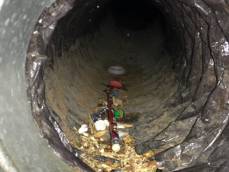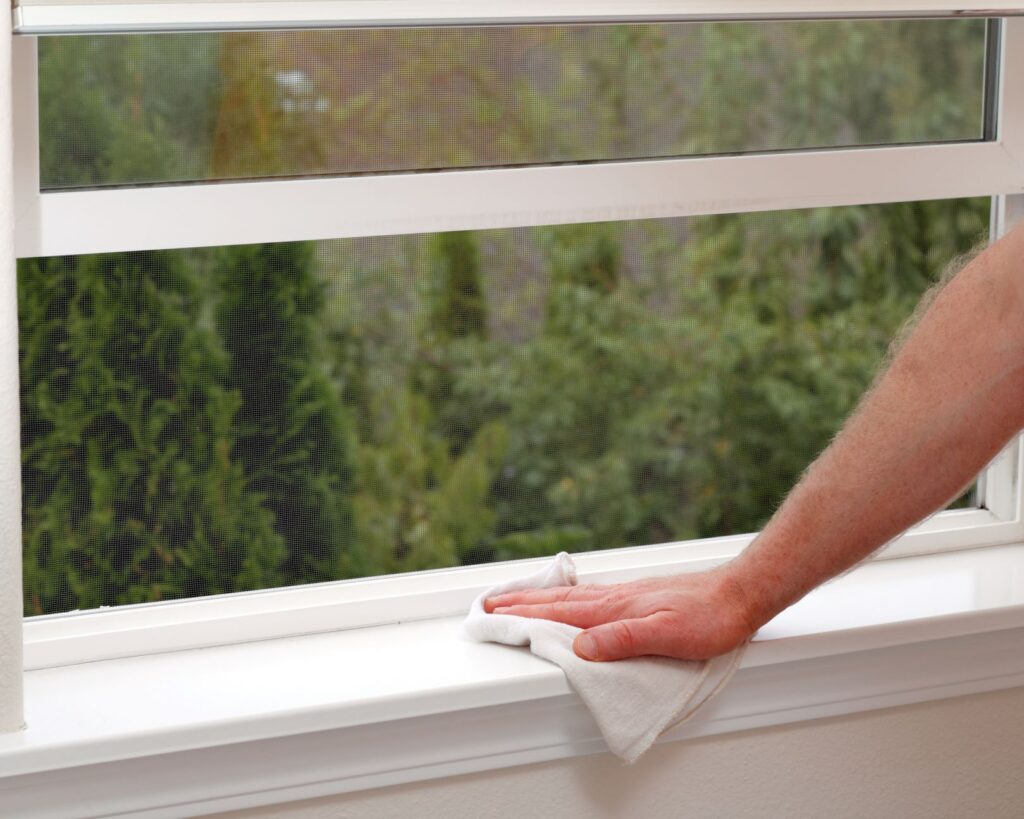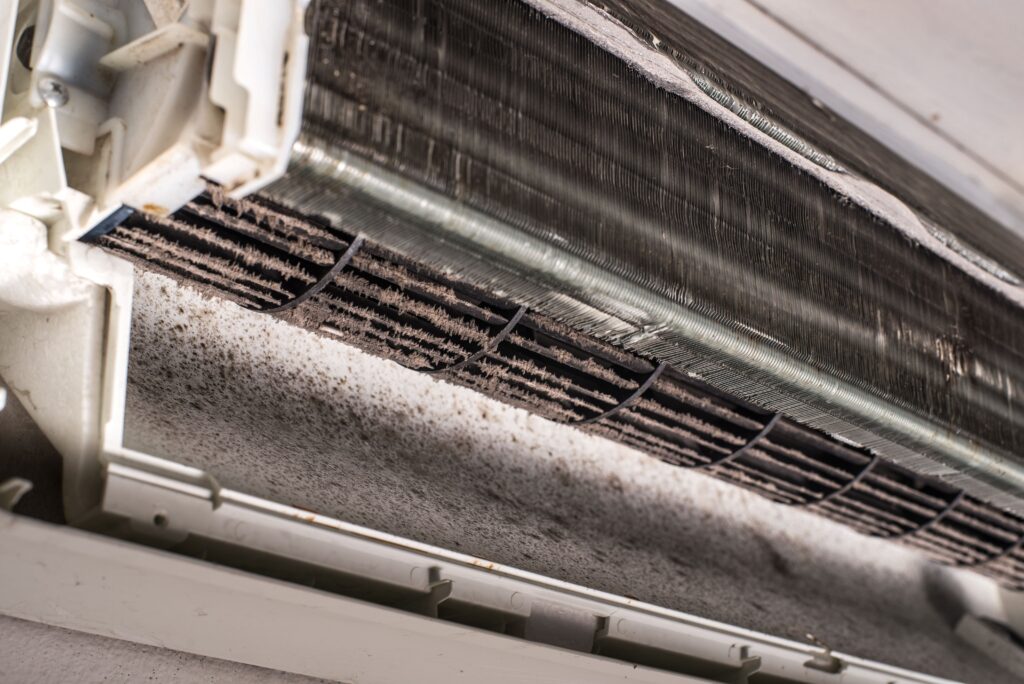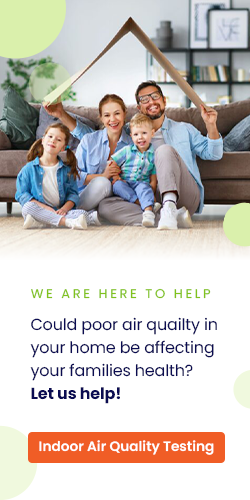Recently, a growing number of people have become aware of two distressing conditions in children: Pediatric Acute-onset Neuropsychiatric Syndrome (PANS) and Pediatrics Autoimmune Neuropsychiatric Disorders Associated with Streptococcal infection (PANDAS). The more we learn about these conditions, the more apparent it becomes that indoor air quality (IAQ) plays a significant role in triggering PANS/PANDAS. Today we will explore what PANS/PANDAS are, how they affect children, who are at risk, and how to prevent triggering PANS/PANDAS in your children.
What are PANS/PANDAS?

PANS and PANDAS are separate but linked conditions that develop “out of the blue” in children and young adolescents. PANS, which stands for “Pediatric Acute-onset Neuropsychiatric Syndrome,” results in the sudden onset of OCD (obsessive-compulsive disorder), anxiety, sensory amplification, behavioral regressions, and eating restrictions. PANDAS, which is “Pediatric Autoimmune Neuropsychiatric Disorders Associated with Streptococcal infections,” is considered to be a subset of PANS. For example, following a strep infection, a child may present with the overnight development of OCD or disabling tics that follow a relapse-remission cycle in numerous episodes. Typically, impacted children are quite young. These conditions can impact a child’s ability to form and maintain relationships, mental and physical health, schoolwork, sleep patterns, and more. Symptoms can range from mild to severe. There’s no single source that triggers PANS/PANDAS, but it is believed that multiple pathogens can trigger it.
How Can My Home Environment Trigger
PANS/PANDAS?

Your home is your sanctuary. It should be a safe environment where your family can grow together and thrive. However, when indoor air quality (IAQ) is poor, your children can suffer. PANS/PANDAS often appears after a bacterial strep infection. These infections can be triggered by a number of chemicals, pollutants, and contaminants within the home. Furthermore, existing cases of PANS/PANDAS can be triggered into relapse or made more severe when IAQ is less- than-ideal.
The National Center for Biotechnology Information (NCBI) purports that severe strep can occur when indoor air pollution is significant and high indoor humidity levels exist. Some of these pollutants could include mold, chemicals in household cleaners, fire retardants, volatile compounds in rugs, smoke (from tobacco or from fire damage), and others. Although our bodies are equipped to deal with toxins, for small children, the accumulation of pollutants and toxins can compound and aggravate illnesses. It’s imperative, then, that you keep an eye on the indoor air quality levels within your home to lower the risk of triggering new PANS/PANDAS or a distressing episode.
What PANS/PANDAS Signs Should I Look Out For?

When a child first develops PANS/PANDAS, it is very quickly evident to the parent or guardian that something is very wrong. Typically, the child will have suffered from strep (especially Group A strep) or another virus and suddenly begins to demonstrate new signs of:
- Obsessive-compulsive disorder
- Anxiety
- Behavioral changes
- Overnight deterioration in schoolwork
- Changes to sensory and mobility
- And more
If a child has previously been diagnosed with PANS/PANDAS, your goal as a parent is to prevent triggering a flare-up or relapse. The first signs of relapse may be indicated by the following:
- Worsened anxiety or OCD, even with treatment
- Increase in restricted eating
- Sleep disturbances
- Bedwetting
- A decrease in school performance after improvement
- Irritability
- Increase in sensitivity to noise and stimuli
If you notice any signs of acute PANS/PANDAS or the signs of a relapse, it’s important to get
your child to a physician and to evaluate your home’s IAQ immediately.
How Can I Keep My Indoor Environment Healthy
and Reduce Risk?

PANS/PANDAS can be very frightening. Whether you want to take steps to reduce the likelihood of your child developing these conditions or to reduce triggering a flare-up of an existing condition, we’re here to help. Here are some simple things you can do to maximize IAQ in a way that won’t trigger PANS/PANDAS.
- Clean Regularly and Thoroughly: Because PANS/PANDAS can be triggered by indoor pollutants and poor IAQ, it’s important to clean your home regularly and thoroughly. Be especially diligent in areas prone to moisture and the potential development of toxic mold. Check and clean windowsills, bathrooms, laundry rooms, and around sinks.
- Monitor Indoor Humidity: Because indoor humidity can play a role in triggering strep and/or PANS/PANDAS, it’s wise to monitor the humidity levels within your home. Using dehumidifiers or a whole home dehumidifier is a great way to keep your home in check.
- Take Care of Maintenance/Repairs Promptly: Flood and fire damage are major triggers for PANS/PANDAS. That’s because flooding leads to mold and musty conditions, while fire damage fills the air with smoke particles and carcinogens. As soon as the damage occurs, you need to have the proper repairs and cleaning completed.
- Additionally, stay on top of regular maintenance of appliances, pipes, electrical wiring, etc., to reduce the chances of flooding or fires.
- Avoid Harsh Chemicals: Harsh chemicals may trigger PANS/PANDAS, so it’s best to stick with gentle, safe, and natural cleaning products wherever possible. If a professional is cleaning your house, ask about the chemicals being used and if they are safe for children.
- Hire a Pro: If there’s any question about the quality of the air in your indoor living environment, it’s wise to have your air evaluated by a professional. Indoor Doctor specializes in testing air and surface samples to determine if pollutants exist within you space, pinpointing the problem area(s), and restoring the home to optimal health conditions. With our help, you can significantly reduce the risk of triggering PANS/PANDAS within your indoor living environment.

Evaluate Your Home and Protect Your Family From PANS/PANDAS Today

Don’t let fear of the unknown rule your life. You want your child to be happy and healthy at all times. Although you can’t control every little thing, you can control your indoor living environment and IAQ. By working with a professional, you can ensure that your child’s environment is safe and will reduce the risk of triggering PANS/PANDAS for the first time or triggering a distressing relapse. Get in touch with our team to set up an inspection of your home’s IAQ today.
References





